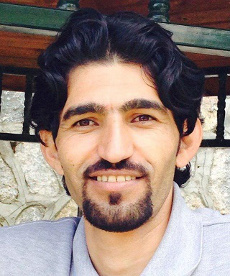UN Special Rapporteur: Execution of Alleged Juvenile Offender Alireza Tajiki “Truly Shocking”
UN Special Rapporteur on the situation of human rights in Iran, Asma Jahangir, has issued a statement on the August 10 execution of Alireza Tajiki.
Alireza is just one of Iran’s juvenile offenders – children who the country’s judiciary continues to try and sentence to death in clear violation of international law. For more on their plight, consult ABF’s project resource, “Too Young To Die: Juvenile Executions in Iran,” including an interactive map plotting the more than 115 instances of minor execution which the Iranian judiciary has carried out since 2000.
The full text of the Special Rapporteur’s announcement appears below:
GENEVA (11 August 2017) – The United Nations Special Rapporteur on the situation of human rights in Iran, Asma Jahangir, has expressed outrage at the execution of a young man who received the death penalty as a child.
Alireza Tajiki was arrested at the age of 15 in 2012 and sentenced to death in 2013 at the age of 16.
He was executed on 10 August despite repeated interventions by UN human rights experts, who said the death penalty should never be used against a child, and noted that Mr. Tajiki had reportedly been tortured and had not received a fair trial.
“I am distressed in the extreme to learn that this execution has gone ahead despite twice being postponed on previous scheduled dates,” said the Special Rapporteur.
The human rights expert stressed that Mr. Tajiki’s death penalty was upheld following judicial procedures which did not meet acceptable international standards of a fair trial or due process.
“I am deeply concerned that the court relied on the use of forced “confessions”, which were reportedly extracted using torture, including beatings, floggings and suspension by the arms and feet,” she said. “There has been no investigation into these torture claims.”
“Mr. Tajiki also suffered violations of his rights to a defence, for example by being denied access to a lawyer throughout the entire investigation process and being held in solitary confinement for 15 days without access to his family.”
Ms. Jahangir added: “This treatment would be unacceptable for an adult, but for a child suspect to have been convicted after such grave rights abuses, and then to be executed despite all interventions, is truly shocking.”
The death sentence against Mr. Tajiki was quashed in 2014 but the Supreme Court, but he was resentenced to death by the Provincial Criminal Court of Fars, which ruled that he had sufficient “mental maturity” for an understanding of his alleged crime to be executed. This verdict was later upheld by the Supreme Court.
“I note that Iran has ratified both the International Covenant on Civil and Political Rights, and the Convention on the Rights of the Child, both of which commit the country to protecting and respecting children’s right to life,” the Special Rapporteur noted.
“These Conventions also unequivocally forbid the passing and carrying out of the death penalty on anyone below 18 years of age.”
The human rights expert recalled that Iran has already executed three other juvenile offenders since January and at least 86 are known to be on death row, although the exact figure may be higher.
“The Government of Iran must immediately and unconditionally stop sentencing children to death,” said Ms. Jahangir. “It must also commute all existing death sentences imposed on children, in line with its international commitments.”





 My Interrogator Said: You Are An Ass, And Asses Do Not Merit Human Rights
My Interrogator Said: You Are An Ass, And Asses Do Not Merit Human Rights